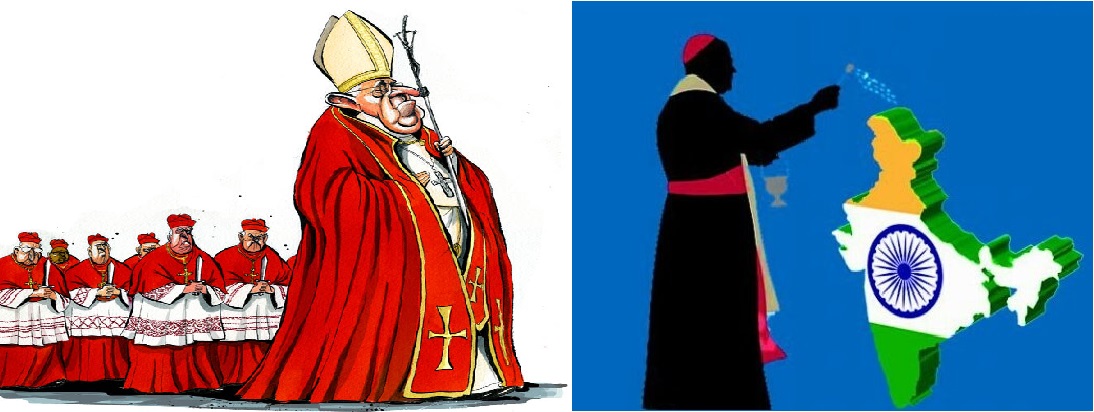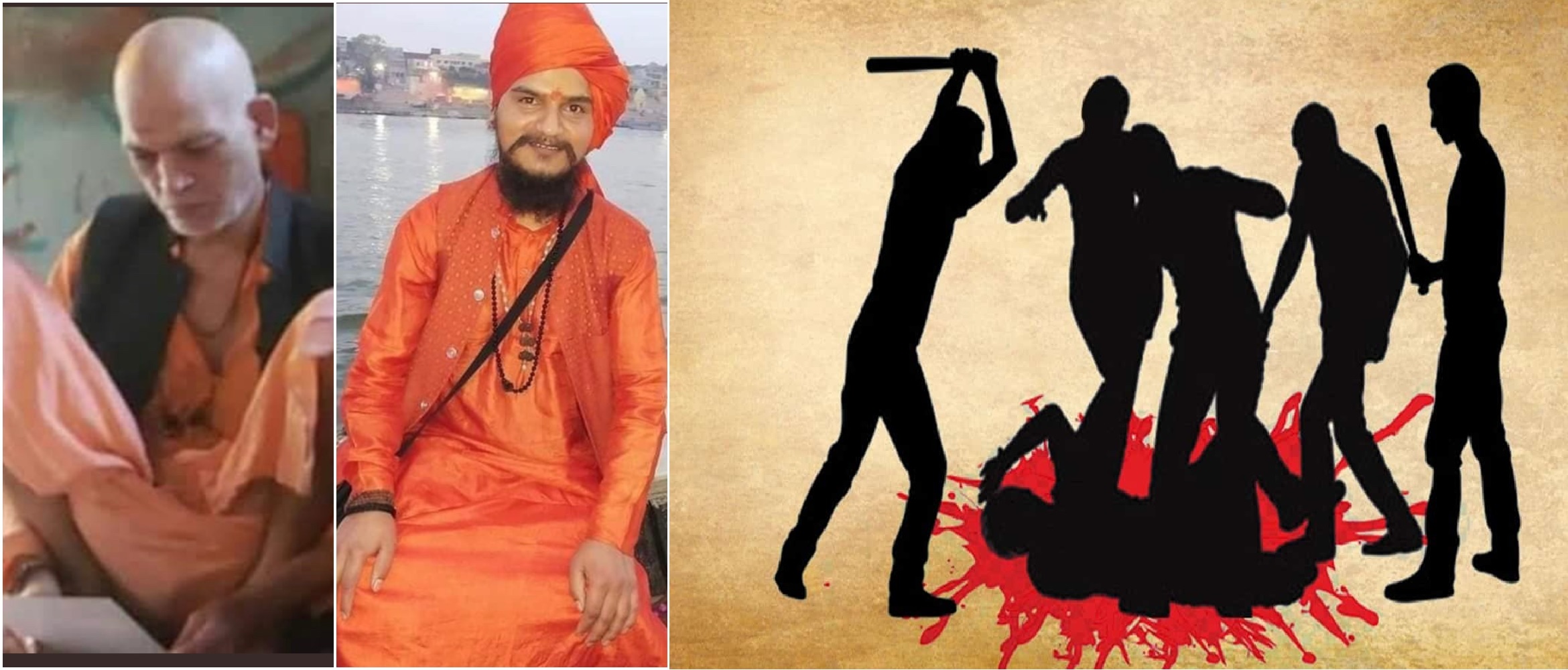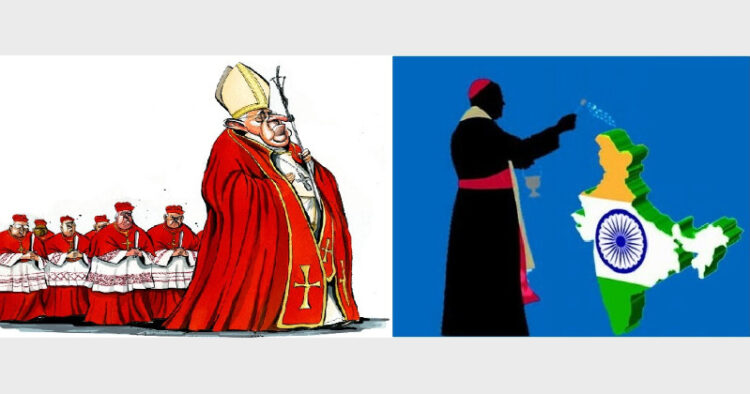Evangelical missions in India are the new avatar of the imperial policies of the west or neo-imperialism which takes upon itself to ‘civilise’ the ‘uncivilised people’. To achieve this by demeaning the faith of Hindus and say the cure and remedy of this disorder is the light of gospel.
– Vivekanand Nartam

Bharat is a cultural entity unlike that of European nation states that are product of 15th century intellectual discoveries or Westphalian system. Therefore, those who associate Bharat with the idea of modern ‘nation state’ say that it’s not a nation but many nations living together. However, Bharat as a cultural entity is not merely a nation state but a Rashtra, a living organism that traces its ancestry dating back to many thousands years starting with Vedas, Upnishads, Ramayana and Mahabharta. Bharat’s age old philosophy, its value system and behavior of its people along with its territory, concepts, shared traditions and common friends and foes contribute to the idea of Bharat as a Rashtra.
The notion of Dharma is at the core of the Rashtra as a concept. Dharma- the religious, ethical, social, political, juridical and customary law organically governing the life of people was a greater sovereign than a king. Bharat’s sacred geography is knit together by countless tracks of pilgrimages-to name few are the 12 Jyotirlingas of Lord Shiva, 52 Shaktipeethas and four mutts established by Adi Shankaracharya that encompass vast territory of Bharat. In the words of Dr. S Radhakrishnan Hindus are a distinct cultural unit, with common history, a common literature and a common civilization. The notions of Swatantrveer Savarkar, Shri Guruji and Pandit Deen Dayal Upadhyay too have put emphasis on common brotherhood based on factors mentioned earlier.
At the Chicago’s Parliament of the World Religions, Swami Vivekanand had proclaimed in front of the delegates that Hinduism teaches the world not just tolerance but acceptance. Quoting from the Shiv Mahima Stotram he had said Bhartiya philosophy believes, “As the different streams having their sources in different places all mingle their water in sea, so O Lord, the different paths which men take through different tendencies, various though they may appear, crooked or straight, all lead to Thee….”. The wonderful doctrine preached in the Bhagwat Gita also upholds the same idea, saying: “Whoever comes to Me, through whatsoever form, I reach him; all men are struggling through paths which in the end lead to Me”. The Upanishads say ‘ekam sat vipra bahudha vadanti’ meaning ‘That which exists in One; the sages call it by various names’.
The adherents of Sanatan Dharma or Vedic Dharma or Hindu Dharma, as it may be called, engage themselves in permanent quest for truth. This truth is not something revealed by God or a prophet, but something that is to be searched by prayer, meditation, good conduct and experience. This quest, for them, persists till the end of one’s life. Religion is experience that reveals God to them. The English words such as faith, religion, and law are insufficient to explain or convey full range of meaning of Dharma. The idea of ‘Dharma’ embraces the total cosmic responsibility of both God and Man. In Hindu Dharma, there is no single authority or liturgical power.
Consequently in none of its forms has Hinduness ever developed the idea of believers. The Hindu Religion does not consist in struggles & attempts to believe a certain doctrine or dogma, but in realizing – not in believing, but in being and becoming. Therefore, in Hinduness there can be no such things as conversion.
The Semitic or Abrahamic faiths, however, believe themselves to be of divine origin. Even if their three major variants namely Judaism, Christianity and Islam relied on different texts, they fundamentally hold their ‘True Faith’ was revealed by God to their prophets and was therefore beyond contestation. Since the word God cannot be false, all three Semitic religions came to revolve around the ideas of absolute truth. They hold theirs is the only way to reach to God and those who chose other paths were doomed to hellfire or damnation. They see it as their duty to show the absolute truth that they have found to those who are still in darkness but unaware of the error of their ways. If you resisted their truth, you were wrong and if you were unwilling to correct yourself, you must be misguided, evil or blind. Therefore, they believe it’s the duty of these ‘true believers’ to convert others to the ‘right’ path by force or inducement.
Cultural Imperialism as tool of Evangelism in Bharat
The Abrahamaic religions hold theirs is the only way to reach to God and are the ‘true believers’ and those who chose other paths are doomed to hellfire or damnation. They believe it’s the duty of these ‘true believers’ to convert others to the ‘right’ path by force or inducement.
Imperialism can crudely be described as perceived notions of superiority, domination and influence upon a person or group of people. In its earliest forms it provided the ideological support to colonial conquest of the Asian and African regions by European powers that led to their brazen economic and cultural exploitation. Through conceptualizing of notions such as ‘environmental determinism’, the Europeans postulated thattropical environments created ‘uncivilized people’ and therefore it was ‘white man’s burden’ to civilize them. Moreover, through narratives such as ‘The Orient’, an imagined geography, the west ideologically rationalized social, cultural, political and economic control of other non-white peoples. Therefore, the evangelical missions in India can rightly be said as the new avatar of the imperial policies of the west or neo-imperialism.
Though Christianity believed to have entered Bharat earlier than it went to Western European countries, it was during British rule that it aggressively took up to proselytizing activities ‘to save the souls form heathenism’. The Evangelical missionaries demean Hindus by calling their faith as most perverted, most monstrous, most implacable, and Bharat as a demon invaded part of the Earth. They then say the cure and remedy of this disorder is the light of gospel for them. Hence Church planted efforts are accentuated to save Hindu souls from perishing. For that they identify inaccessible and illiterate regions to carry out their proselytizing activities.
The janjati areas of Bharat are the hotbeds for them. The organizations such as IET, FMPB, GFA, IPC, AG, Christ for India, IEHC, OM, South Indian Soul Winners Association, NMS, Brethren Missionary Society, IEM, CNI, Gossener Evangelical Lutherian Church, Indian Outreach Mission, Indian Campus Crusade for Christ, Evangelical Church of India, Baptist Church, New Life Ministry, the Village Evangelization of India Mission etc. are carrying out the their proselytizing activities rampantly.
Why and How Evangelize Bharat?
Missionaries are using inducements to convert innocent janjatis from their Hindu faith. Their conspiracy of deculturization of janjatis has led to enmity and mistrust between individuals and groups. The proselytizing endeavors of the evangelists has led to persecution and killing of Hindu saints in various parts of Bharat with the Palghar lynching of Sadhus being the recent one.

Evangelization in Bharat appears to be a part of the uniform world policy to revive Christendom and establish western supremacy. The missionaries claim evangelization of Bharat is an ‘unfinished task’ and hold Bharat as over-ripe harvest field. To achieve their objectives they send urgent calls through pamphlets and news bulletins to reap the harvest before it’s too late. They have posed a serious threat to Hindu identity with their intolerant attitudes to local cultures, their aims and methods and the language they use. Christian missions, in the garb of their social and charitable activities, are weaning a large number of gullible people from the Hindu community. This is being done with the help of foreign funds.
A glance at the demographic profile of the Christian population in Bharat will be of some practical value here. They have converted most of the North Eastern territory of Bharat. Now missionaries both in India and outside look at their meager and disorganized presence in the North Bharat’s Hindi belt. AD 2000 & Beyond is the worldwide evangelical movement which coordinates the work on such areas of the world where people have not come under the influence of the gospel. Among the unreached people of the world, the janjati areas of Bharat are considered to be the core areas to be focused upon. In these areas every evangelical group is activated to take part in the great unfinished task of evangelization by forming Church for every people and the gospel for every person.
Contextualizing Evangelical Activities in Bharat.
Missionaries are using inducements to convert innocent janjatis from their Hindu faith. They ask them to give up worship of Hindu deities which janjatis used to worship from their birth. To alienate them further from their culture, missionaries denounce and proscribe their religious practices relating to marriage and death. They prevent them from participating in Hindu festivals and contributing in their organization. This conspiracy of deculturization of janjatis has led to enmity and mistrust between individuals and groups. It’s pertinent to maintain that Indian Christians are mere agents of an international conspiracy for the spread of Christianity.
The proselytizing endeavors of the evangelists has led to persecution and killing of Hindu saints in various parts of Bharat, the Palghar lynching of Kalpvriksha Giri Maharaj, Sushil Giri Mharaj and their driver Nilesh Telgade being the recent one. But this incident cannot be seen in isolation. The killers of Swami Lakshmanand Sarswati have been released on bail and enjoying the immunity of law. In the similar incident Swami Shanti Kali Maharaj of Tripura too was assassinated on August 27, 2000 by Christian militants belonging to the separatist organization NLFT. There have been numerous attacks on people belonging to minority Hindu fold in the North Eastern States by missionary agents. The Pathalgarhi separatists killed 7 people at Burugulikera in the West Sighbhoom district of Jharkhand in January, 2000.
Therefore, it’s the duty of every individuals concerned for the unity, integrity and sovereignty of Bharat to speak up against the ongoing conspiracy. While we must ensure the perpetrators of the crime do not go scot free, it’s equally important to device broader strategy to contain onslaught of evangelic cultural imperialism in Bharat.
(The author is an Assistant Professor of Political Science in the Shayam Lal College, University of Delhi)













Comments